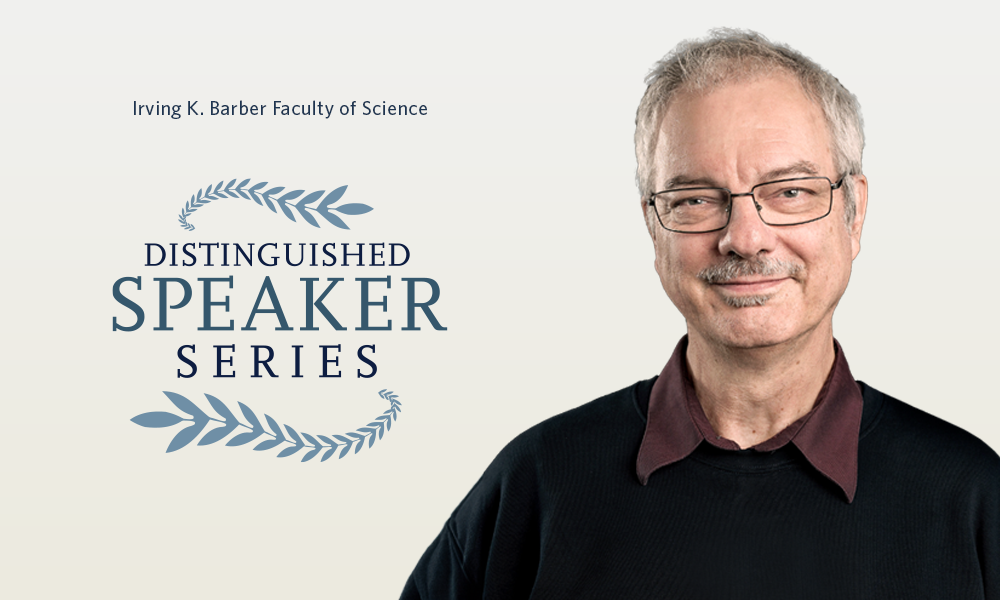- Details
- Tickets

The Irving K. Barber Faculty of Science is pleased to invite the community to this spring’s Distinguished Speaker Series event featuring
Nobel Prize Winner
Dr. Morten Meldal
From Molecule to Medicine: How Modern Chemistry is Transforming the Way We Treat Disease
* Registration for this event is currently full. Please click here to add your name to the waitlist.
About the talk:
Many of us rely on prescription medication to manage our health—but how often do we think about the science behind the drug?
Chemists work to understand and control complicated chemical processes to advance knowledge in fields like healthcare and pharmaceutical manufacturing.
In 2022, Dr. Morten Meldal was awarded the Nobel Prize in Chemistry for his part in developing a process that turns chemicals into parts that click together like LEGO®. The process has been used to create and screen millions of complex chemicals to identify those most suitable for drug development.
In his talk, Dr. Meldal will discuss how this LEGO®-like process is opening new doors in the treatment of infectious and metabolic illnesses like cancer, obesity, Alzheimer’s and dementia, and how this process is being used to generate new antibiotics to combat ever-changing superbugs commonly found in hospitals.
Finally, he’ll share his inspiring journey to becoming a Nobel Laureate, the importance of serendipity in research, and give his thoughts on how investing in science education today can lead to sounder policy and a better-informed society tomorrow.
About the speaker:
Dr. Morten Meldal is a Danish Chemist and Professor of Chemistry at the University of Copenhagen in Denmark.
He received his Master of Science and PhD in Chemical Engineering from the Technical University of Denmark.
An internationally-recognized leader in the field of chemical engineering, he was awarded the Nobel Prize in Chemistry in 2022, alongside colleagues Barry Sharpless and Carolyn Bartozzi, for the ground-breaking development of “click chemistry” and “biorthogonal chemistry”.
The methods they developed are now used globally in pharmaceutical development, DNA-mapping, and in the creation of new materials for industries like healthcare.


